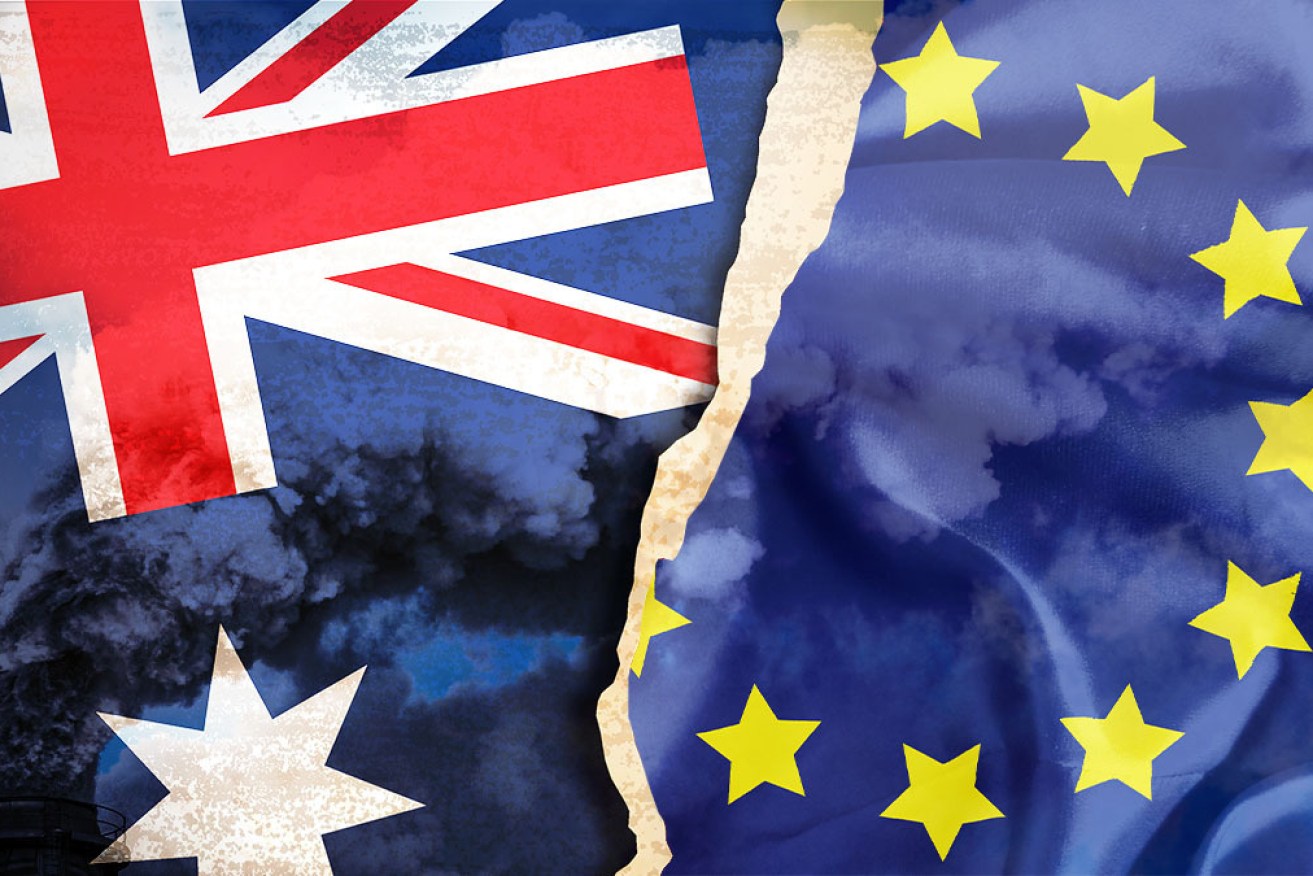EU moves one step closer towards carbon border tax


The EU wants to create a level playing field by penalising exporters for emitting greenhouse gases. Photo: TND
Pressure is building on the Morrison government to take stronger action on climate change after the European Parliament voted to introduce a carbon border tax on heavy polluters such as Australia.
Australian exporters now risk being slugged with tens of millions of dollars in tariffs unless the federal government announces additional steps to cut the nation’s greenhouse gas emissions.
Prime Minister Scott Morrison has repeatedly said Australia is on course to “meet and beat” its Paris Agreement target to drive emissions 26 to 28 per cent below 2005 levels by 2030.
But government projections released in December show the country is on track to miss this target and members of European Parliament have threatened to derail trade negotiations with the Australian government unless it promises stronger action.
“Australia has to understand that we are really serious,” Pascal Canfin, chairman of the European Parliament’s environment committee, told the ABC.
“We will not ratify a trade deal if there is no concrete additional climate action from Australia.”

European Commission President Ursula von der Leyen raised the EU’s 2030 emissions target in September. Photo: AAP
Several models are said to be under consideration, though the European Parliament is pushing for one that requires producers in heavy-emitting industries to buy and trade permits to emit greenhouse gases.
Under such a mechanism, Australian exporters would have to pay import tariffs equivalent to the fees paid under the EU’s Emissions Trading System (ETS) – unless Australia introduces its own ETS or the exporter can demonstrate its green credentials.
Tweet from @climatecouncil
Former Liberal Party leader John Hewson told The New Daily he was surprised the EU had taken so long to reach this point.
“Why would they want to import food and wine from Australia, which has a cost advantage because we don’t penalise pollution and they do?” he asked.
The mechanism passed through European Parliament with a large majority: 444 MPs voted in favour, 70 voted against, and 181 abstained.
This suggests it has broad-based political support and is likely to come into force.
Dan Gocher, director of climate and environment at the Australasian Centre for Corporate Responsibility, said the EU’s progress cast a shadow on the Coalition’s failings.
“We’ve had nearly eight years of Coalition government and one of the first acts of that government, under Tony Abbott, was to repeal our carbon price. And you have to look back now and think that was a case of economic vandalism,” Mr Gocher said.
“If we had that mechanism in place for the last seven or eight years, industries would have had the chance to evolve and to invest in cleaner technologies.
“And what we’ve had instead is stalling. Stalling on policy and stalling on industry development.”
Mr Gocher said the only bright spot when it came to emissions was the rush of renewables into the grid.
“But across heavy industries, it’s a pretty sorry state of affairs,” he said.

Mr Gocher says an incoherent energy policy has undermined Australia’s climate ambitions. Photo: AAP
Members of European Parliament want the carbon border tax to apply to industries including energy, cement, steel, aluminium, paper, glass, chemicals, fertilisers and oil refining.
Mr Gocher said very few, if any, of those industries were taking steps to implement “a decarbonisation pathway”, as the federal government had an incoherent energy policy and had offered insufficient direction.
“ACCR is engaged with Rio Tinto about its aluminium business, for instance. And we don’t see a decarbonisation pathway there. And BlueScope [Steel] is talking about operational efficiencies and upgrading some of their furnaces, but they’re not talking about green steel, which is where the conversation needs to go,” he said.
“For a country like Australia that produces a fairly large proportion of the world’s iron ore, you’d think green steel would be a part of the conversation … but it’s not.”
In an interview with Sky News on Thursday, Trade Minister Dan Tehan described the carbon border tax as “deeply concerning” and said it might contravene WTO regulations.
“There are serious exemptions given in the European Union to heavy industries there. Their industrial sector gets free passes on this – about 90 per cent of their industrial sector. They obviously have subsidies already in place, so how do you account for those subsidies,” he said.
“From an Australian point of view, we think a much more positive approach to take is one where we look to liberalise trade in environmental goods, in environmental services.”








